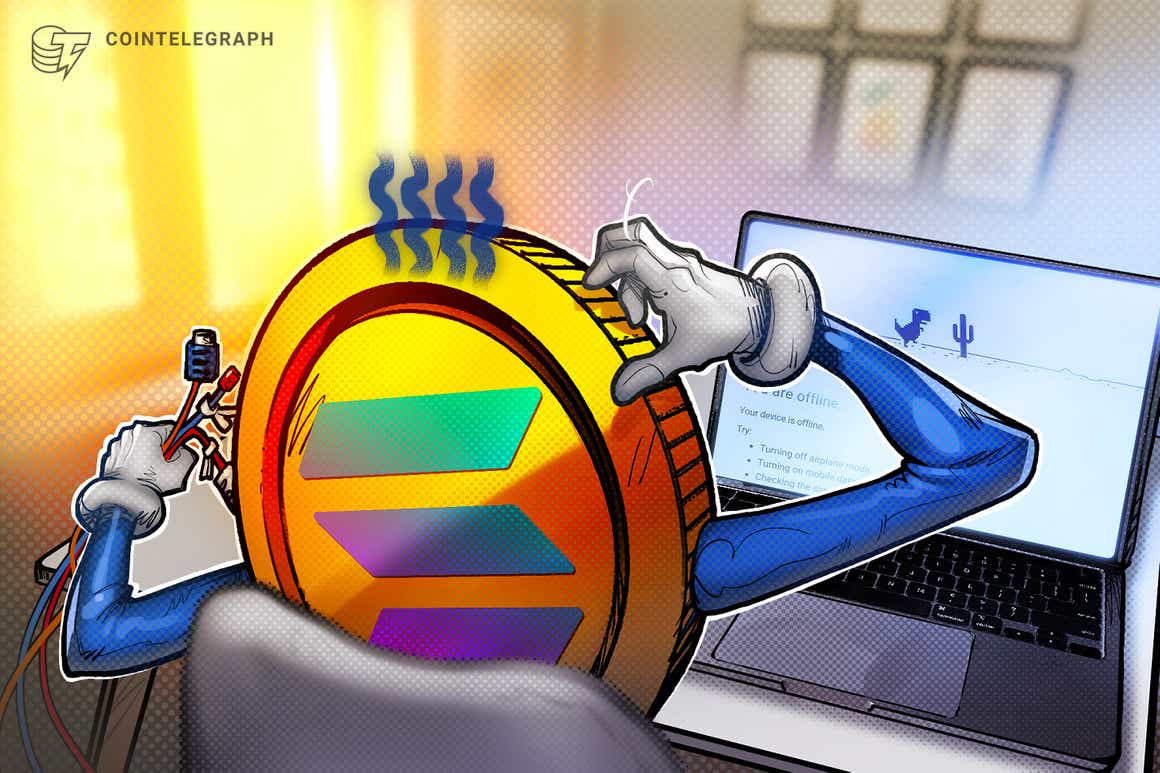Solana is a highly scalable decentralized blockchain developed with a unique method of ordering transactions that significantly improves its transa

Solana is a highly scalable decentralized blockchain developed with a unique method of ordering transactions that significantly improves its transaction throughput, to the point that it has consistently been processing over 2,500 transactions per second. It claims to be able to process 50,000 transactions per second.
The power of Solana’s cheap transactions is felt when it’s time to pay transaction fees, with users being able to move funds on the network for a fraction of a cent. By comparison, the average transaction fee on the Bitcoin network is around $1.80, even after dropping nearly 58% this year. Meanwhile, Ethereum gas fees cost an average of $22 and up per transaction.
While Solana has an extremely high transaction throughput, some have suggested that its developers have prioritized scalability over security after it endured a 17-hour outage that required the collaboration of its engineers and more than 1,000 validators to overcome.
Solana attributed the outage to a denial-of-service attack aimed at an initial decentralized exchange offering (IDO). According to a post from the Solana Foundation, botting activity overwhelmed the network with a transaction load of 400,000 per second, which crashed Solana’s validators after they ran out of memory.
More recently, Solana was hit by another denial-of-service attack that significantly slowed the network but did not take it down. Speaking to Cointelegraph, Austin Federa, head of communications at Solana Labs, clarified that the recent outage came after a number of transactions during an IDO “landed in a Solana block that took an excessive amount of compute power.”
Federa added that the “compute for those kinds of transactions wasn’t properly metered by the network, and caused blocks to take much longer to process than the network expected.” He pointed out, however, that the network not go down at any point and can always be independently verified, adding:
“Solana’s runtime is a new design. It doesn’t use EVM [Ethereum Virtual Machine] and a ton of innovation was done to ensure that users have the cheapest fees possible, but there’s still work to be done on the runtime.”
Work on improving transaction metering has already started, Federa stated. Data has shown that after Solana’s most recent outage, developers went to work, with daily GitHub submission rates quickly surpassing those of rivals Polkadot and Cardano.
In the eyes of some industry participants, the damage may already be done, as while transactions may be cheap, some users may prefer to pay a premium to ensure their transactions go through no matter what.
Are Solana’s outages cause for concern?
Problems such as outages are to be expected in any nascent project, especially one trying to solve a problem that some believe is inherent to public blockchains: scalability. Speaking to Cointelegraph, Sergey Zhdanov, chief operating officer of crypto exchange EXMO UK, said that Solana’s secret is its proof-of-history consensus mechanism.
For Zhdanov, denial-of-service attacks and similar outages “don’t really influence the trust of the network” and should be disregarded. Per his words, if investors were concerned about such hiccups, they would have also abandoned Ethereum by now.
Critical vulnerabilities, such as the possibility of a 51% attack, are what investors should worry about, Zhdanov added. Marie Tatibouet, chief marketing officer at cryptocurrency trading platform Gate.io, seemingly disagrees. Speaking to Cointelegraph, Tatibouet said that Solana’s outages “affect trust,” as the network “has suffered from centralization issues more than once this year,” showing that the team “prioritized scalability over security.” She added that investors and users should be concerned about Solana’s outages:
“The whole idea of having ‘Ethereum killers’ is to have networks that can handle high throughput. What does it tell you about the network that it fails repeatedly under high demand?”
Tatibouet added that while she “really likes” the team behind Solana and believes it will overcome the issues behind these outages in the near future, there are “inherent problems in the network itself.”
Furthermore, the recent outages have been linked to concerns over the centralization of Solana. The network relies on the Solana Foundation to develop core nodes on the blockchain, while networks like Ethereum have several core node developers. While anyone can become a validator on Solana, running a node can be expensive because of the network’s high transaction throughput.
Such costs inevitably lead to a certain degree of centralization, which, to some, is a beneficial trade-off for fast, cheap transactions. To others, decentralization is sacred, as it could help prevent collusion or other types of attacks on the network.
Speaking to Cointelegraph, Noelle Acheson, head of market insights at crypto prime broker Genesis Trading, pointed out that the Solana network is still…
cointelegraph.com
